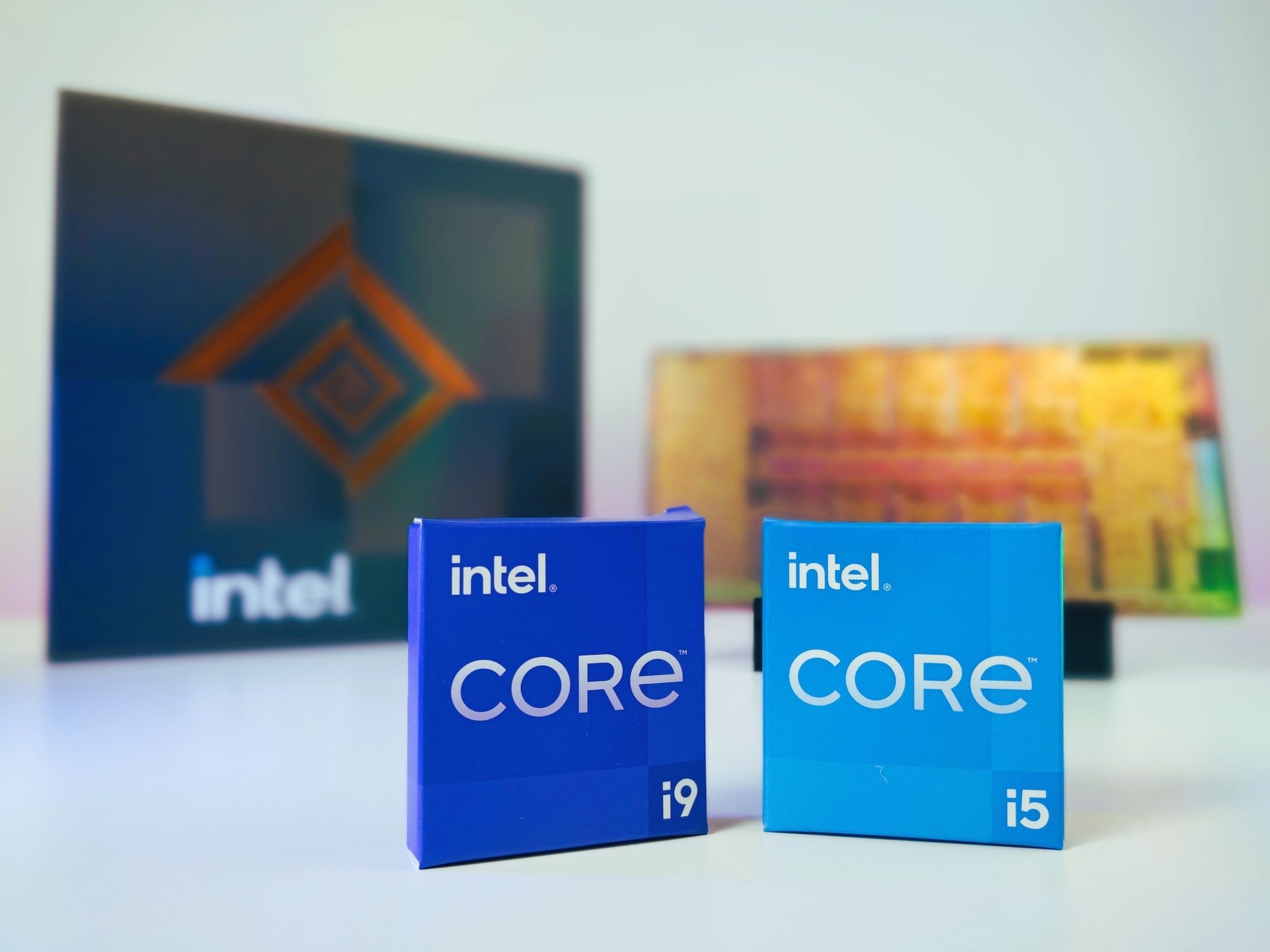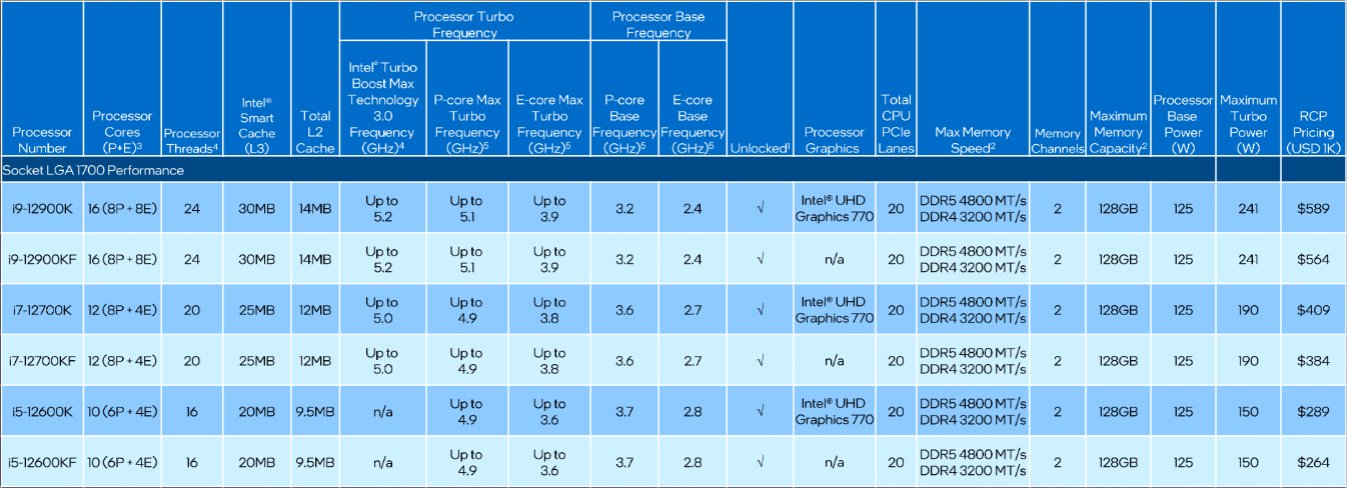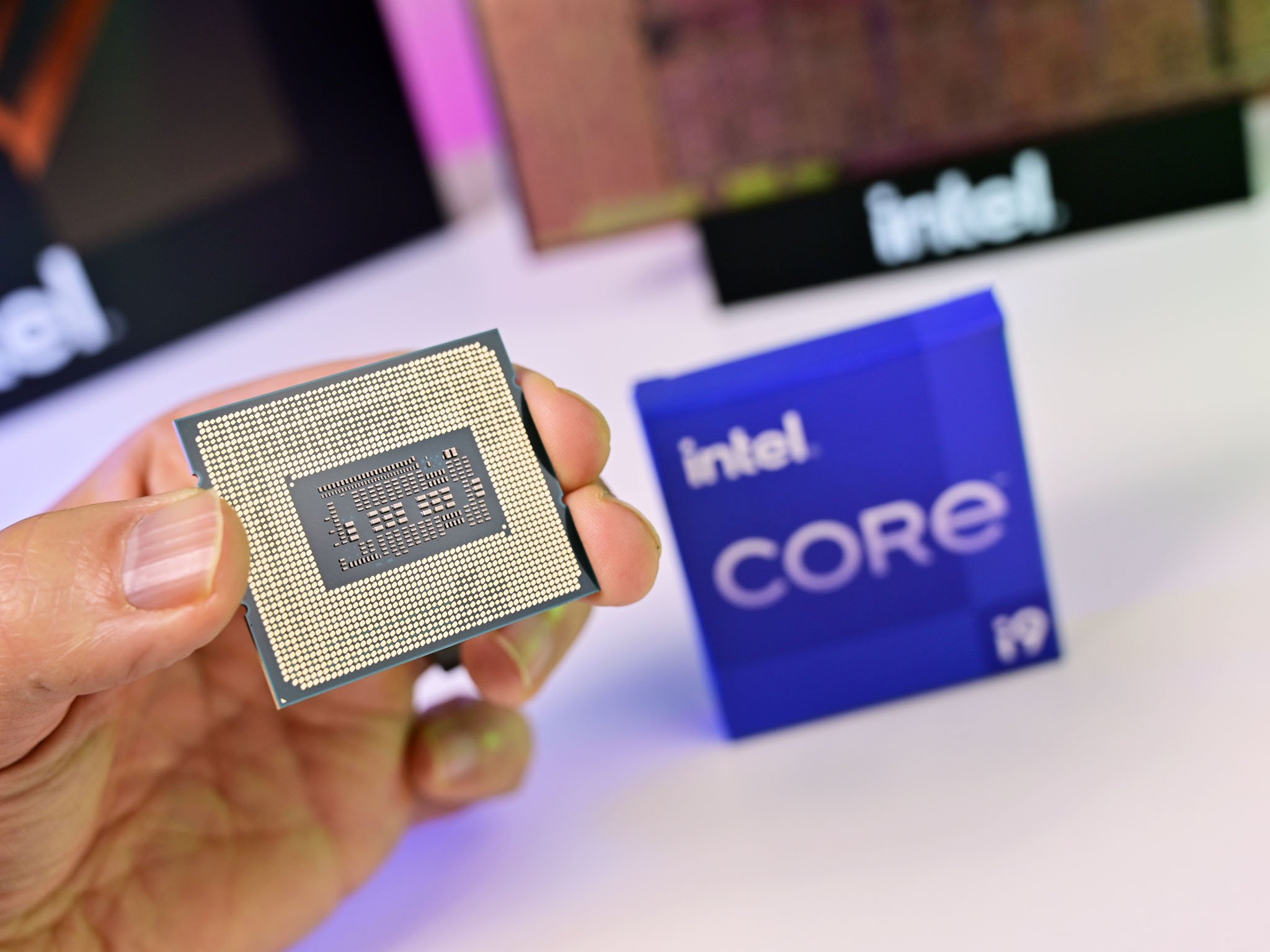Feeling the AMD heat, Intel strikes back with an impressive family of desktop CPUs featuring "E" and "P" cores.
What you need to know
- Intel announced an array of new 12th Gen Alder Lake processors on the company's new "Intel 7" manufacturing process.
- The new 12th Gen processors are the first from Intel to utilize a hybrid architecture, similar to ARM chips, and unlock DDR5 and PCIe 5.0 support.
- You can preorder the new 12th Gen processors today with prices starting from $264.
Intel announced new processors today, the first chips based on Intel 7. This new manufacturing process is an advancement on (and successor to) the existing 14nm process utilized for 10th and 11th Gen Intel CPUs (some of the best CPUs available). The flagship 12th Gen processor is the Core i9-12900K and is positioned as the new king for PC gaming.
The range starts with the Core i5-12600KF, starting from just $264. This CPU has 10 cores and 16 threads, which may surprise those who are used to the number of threads doubling physical cores. This change is due to Intel's new hybrid architecture design that Arm Ltd first pioneered with ARM processors.
 Official consumer packaging for Intel 12th Gen is ... bold.
Official consumer packaging for Intel 12th Gen is ... bold.
Instead of all cores being treated as equals and used for the same tasks, Intel now splits its CPUs into two with Performance-cores (Golden Cove or "P-cores") and Efficient-cores (Gracemont or "E-cores"). The former makes up the highest performing cores Intel has ever produced, while the more efficient cores are dedicated to background tasks and low priority processes.
It's also well-known that Windows 11 leverages this new scheduling technology to take advantage of this power efficiency. As we wrote back in August:
With two distinct cores on offer, Intel is introducing a new scheduler called Intel Thread Director that effectively manages workloads between the performance and efficiency cores. Via this system, intensive tasks — like a game or video editor — are assigned to the p-cores. If new tasks need to run in the background — like email or network activity — they will go to the e-core.
Now, if all the p-cores are busy and there's another task that needs to be prioritized, Thread Director will determine if one of the current workloads on the p-core can be moved to the e-core and then slot in the new task accordingly. Now, a lot of this has to do with software scheduling, so Intel has worked with Microsoft to take full advantage of Thread Director in Windows 11.
The flagship gaming processor is the Core i9-12900K, sporting 16 cores in total and 24 threads. On paper, it's a machine capable of hitting 5.2GHz with Intel's Turbo Boost Max technology. The company's UHD Graphics 770 IGP is also present, allowing you to play numerous PC titles without the best graphics card.
Intel claims improvements across the board with the new 12th Gen family of desktop processors. Around 20% or more performance gains in games will allow PC owners to push the boundaries further with the latest RTX GPUs from NVIDIA. Then there's DDR5 RAM, which can provide up to 36% faster photo editing, up to 32% faster video editing, up to 37% faster 3D modeling, and up to 100% faster multi-frame rendering performance.
Intel 12th Gen: Pricing, availability, and laptops?
The new processors are available for preorder now, and prices start from $264 for the Core i5-12600KF, with the top-tier Core i9 12900K coming in at a very competitive $589. By comparison, AMD launched the venerable Ryzen 9 5950X at $849 (for retail; $749 current). As to which benches the best, you'll have to stay tuned for official reviews.
Coinciding with today's news, Dell announced the new Alienware Aurora R13 desktop gaming rig and the new super-powerful XPS Desktop 8950 for consumers and professionals, both with 12th Gen chip options and powerful GPUs.
For those looking for 12th Gen in laptops, no word on those chips yet. Historically, Intel announces such chips at CES in January with a late spring rollout, which may be the case for Alder Lake as well. Alleged benchmarks from the flagship i9-12900HK reveal a powerful chip that evidently can beat Apple's M1 Max on performance (but unlikely for efficiency).




0 Commentaires